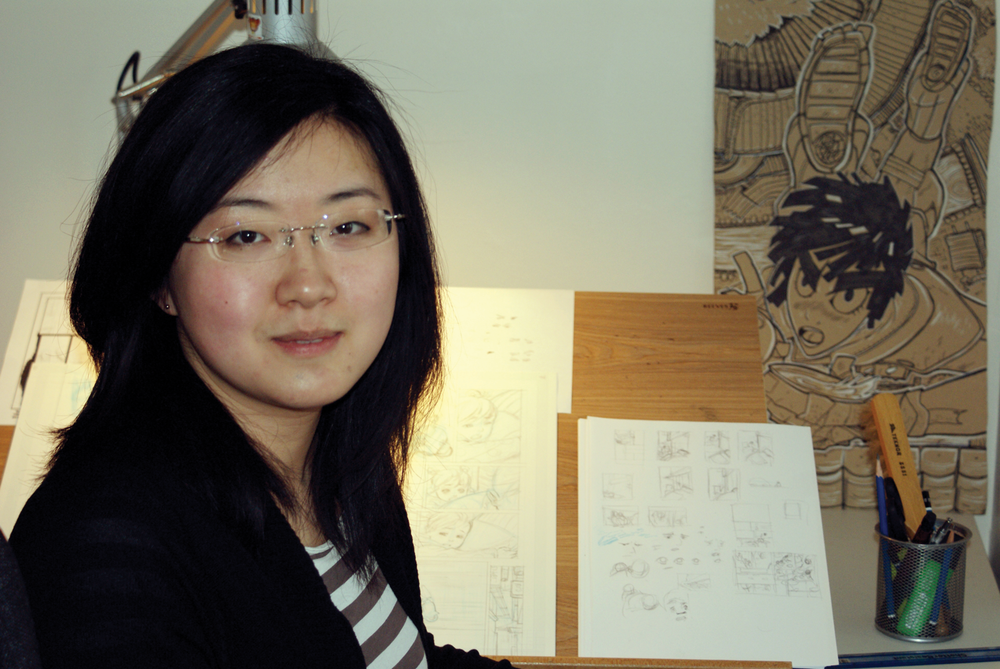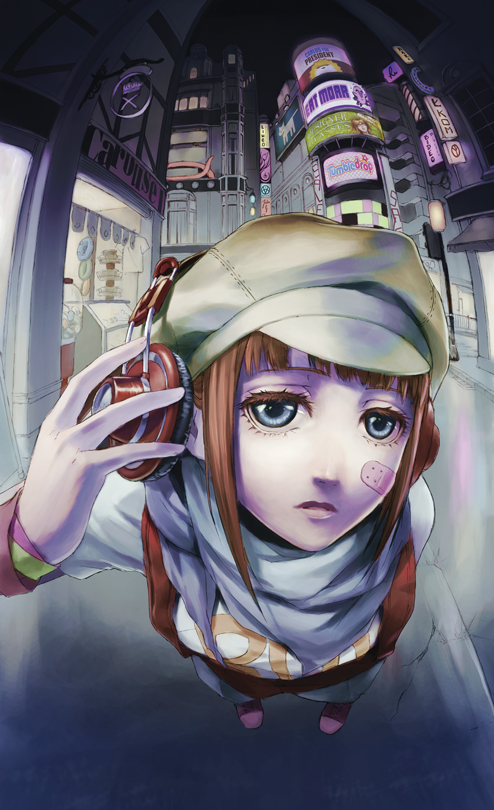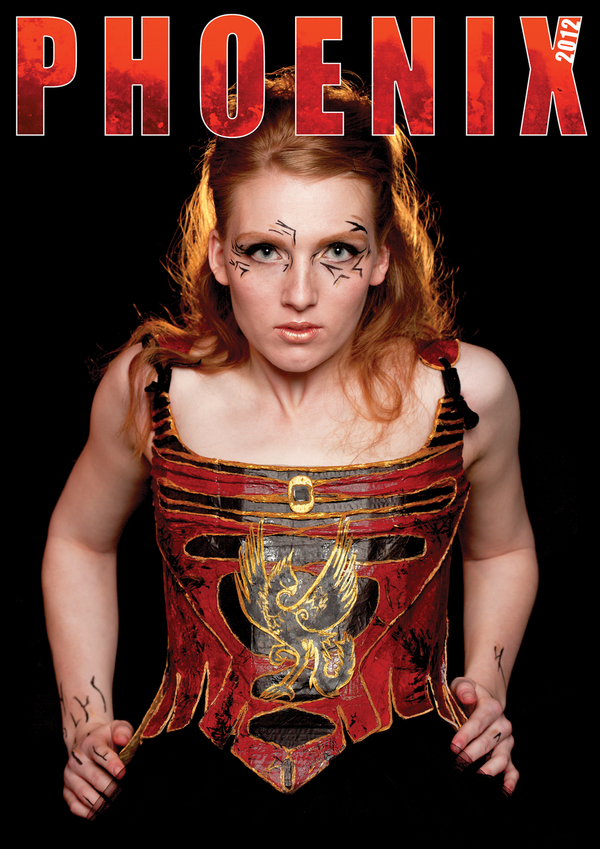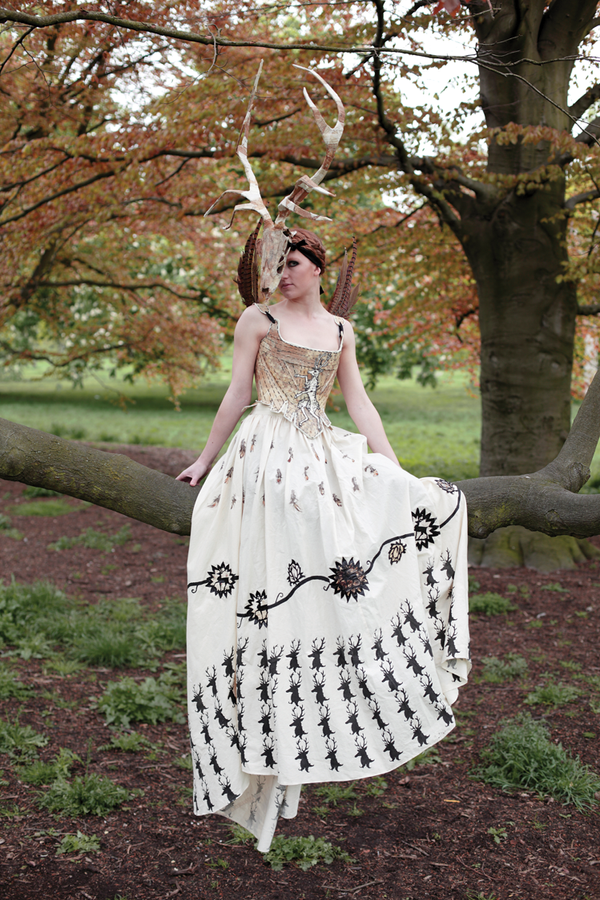The Artist - Nana Li

Nana Li is a freelance illustrator currently based in London. Having previously completed a Biomedical Engineering degree, she now specialises in illustration, comics and character design. She has had several publications and a number of notable clients including Canon, ImgaineFX and SelfMadeHero.
Eleanor - What was the process from doing a BME degree to becoming a professional artist?
Nana - It definitely wasn’t an overnight thing. I think, I have always been interesting in drawing and art even when I was looking for things to study at university. I was sort of looking towards advertising, graphic design… Both of my parents are engineers and they just, kind of, convinced me that, it’s a very difficult path to pursue and me being sixteen/seventeen at the time I didn’t really know any better. I grew up in a very small town in Sweden. I didn’t know anyone who did anything creative for a living; It just seemed like a world away.
I came to the UK and then I got to know people doing art through the comic and manga things over here. That sort of awakened the desire to actually pursue it. But there were many steps getting to that point.
E - Are you experimenting with styles at the moment?
N - Trying. Basically I’ve been interested in concept art for a while and so [I’m] interested in moving towards doing that kind of stuff for games or movies. I think, it’s a very exciting field and also, freelancing, I’ve done it for a couple of years now. And while it’s good - in that you have a lot of freedom and you can pick up the projects you want - I kind of miss having people to work with, collaborate with.
E - So you’d like to work in a team again?
N - Exactly, yeah. It’s nice to get inspired by other people and it allows you to grow faster so that’s sort of where I want to go. But because started in manga most of my clientele are looking for manga so it’s been a little bit difficult to change.
E - If you were in a team, might you go and have freelance jobs on the side? So that you didn’t leave manga completely?

N - The longer I work on it the less there is a divide in my mind, between manga, between what I do and what I want to do. In the end it’s all about illustration. It’s about problem-solving. It’s about visual communication, all those big words. Whether it’s drawn in manga style or drawn in the more realistic or cartoony style doesn’t really matter. I think I’m starting to move away from style being an issue. It’s more what I want to do with artwork. I want to draw exciting concepts for cool projects.
E - What would you suggest to people who might want to get into art?
N - I think it’s difficult in that it’s very non-transparent, how you get into it. I mean, for most of us there was this little... you knew that if you finished school and you finished A-levels, you then go to university, you do your degree and then you might do a PhD or a masters or something and then go out and find a job. It’s very A to B to C to D; straight line, clear. There’s an established way of doing it.
Art is weird it’s been very hard for me to get used to it. Just because you do something doesn’t necessarily mean that it will get you a result. Just because you do a webcomic or a graphic novel, doesn’t necessarily mean that it’s going to give you whatever you want from it. It will forward your career, in that you will have done more work and you’ll probably have gotten something out of it but after that what path you take is so up to you.
I think it helps when you know what you want to do. So for example if you know you want to do concept art for video games then you know that you have to learn how to draw well and paint well, and also work on putting ideas out quickly. And then I guess you go and approach companies that are interested. If you want to do illustration, which is mostly freelance based, and then it’s much more about just trying to get more work done, getting more commissions, promoting yourself. Then you never know what kind of work will come along.
I did this tour poster for Ross Noble, the comedian, and that was really weird. My artwork was used in the stage show, so it was projected onto the stage curtain as an animation, and they had this bouncy air castle on stage using some of the features, some of the poster I did. It was crazy.
Freelance; you get some weird stuff. Which is fun and exciting, so I think that’s why people like freelance, but it can also be difficult, periods without work – and there you should probably be working on promoting yourself, or you should have a side project.
E - So people have to understand that freelance has an inconsistent income and it can be very difficult?
N - Absolutely and probably takes a year or two to really get established as well. I mean I’ve been doing this for almost four years now and I haven’t done as much promoting as I probably should have. But I do have a couple of people, clients who keep coming back to me, so you get your established clients after a while.
E - Is there a particular game or movie that you would really love to work on?
N - I just finished a game, Journey by Thatgamecompany. Really inspiring, I wasted a lot of time when I should have been working yesterday, looking up information about Thatgamecompany and their philosophy. I think that’s really exciting the whole indie game company doing their own type of game. In that kind of environment you have to take on quite a lot of roles, do a lot of the jobs, which really sounds very fun.







